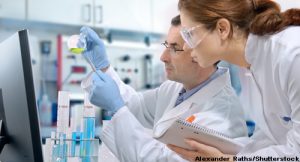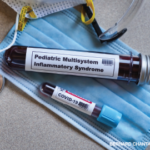 ACR CONVERGENCE 2021—The COVID-19 pandemic has radically altered the landscape of medicine across the U.S. and the world. A great deal of research has been, and is being, conducted to understand the SARS-CoV-2 virus and its implications for all fields of medicine; the rheumatology specialty is no exception. In fact, new concepts in autoimmunity and immunology are being discovered every day, shifting paradigms of how we understand the balance between disease and health. On Nov. 4, experts came together to discuss the implications for rheumatology.
ACR CONVERGENCE 2021—The COVID-19 pandemic has radically altered the landscape of medicine across the U.S. and the world. A great deal of research has been, and is being, conducted to understand the SARS-CoV-2 virus and its implications for all fields of medicine; the rheumatology specialty is no exception. In fact, new concepts in autoimmunity and immunology are being discovered every day, shifting paradigms of how we understand the balance between disease and health. On Nov. 4, experts came together to discuss the implications for rheumatology.
FDA View
Philip Krause, MD, deputy director of the Office of Vaccines Research and Review at the U.S. Food & Drug Administration (FDA), Center for Biologics Evaluation and Research (CBER), Silver Spring, Md., began the session by providing an overview of hot topics related to COVID-19 vaccines and regulation. He noted that the FDA has played a key role in evaluating the safety and efficacy of vaccines against SARS-CoV-2 and, in the process, has had to balance competing goals.
Specifically, the FDA has sought to adhere to a rigorous, evidence-based approach for its scientific review, which can be slow and tedious, while aiming to quickly make vaccines widely available to a public in dire need of protection from the virus. Dr. Krause noted that emergency use authorization (EUA) helps balance these issues. Under EUA, the FDA can permit the use of unapproved medical products, such as vaccines, in times of emergency so long as certain statutory criteria have been met, including that no adequate, approved and available alternatives exist.
Dr. Krause explained that severe side effects related to vaccines have been quite rare and that certain specific adverse events, such as myocarditis or pericarditis, appear to have the highest incidence after the second dose of the mRNA vaccines. Further, data are still unclear regarding the efficacy of providing booster vaccination doses to the general population. Although a booster dose is clearly indicated for immunocompromised patients and those with the highest risk for SARS-CoV-2 infection, what should be done for young, healthy individuals? Should society wait for variant-specific boosters to become available for administration? How well and for how long will booster doses protect against transmission of SARS-CoV-2?
Many questions remain and may take years of research to answer.
Anti-Vaccine Sentiment
The session’s next speaker was Peter Hotez, MD, PhD, dean of the National School of Tropical Medicine, Baylor College of Medicine, Houston. Dr. Hotez discussed, among other things, the three phases of anti-vaccine sentiment that have swept across the U.S. over the past several decades.



